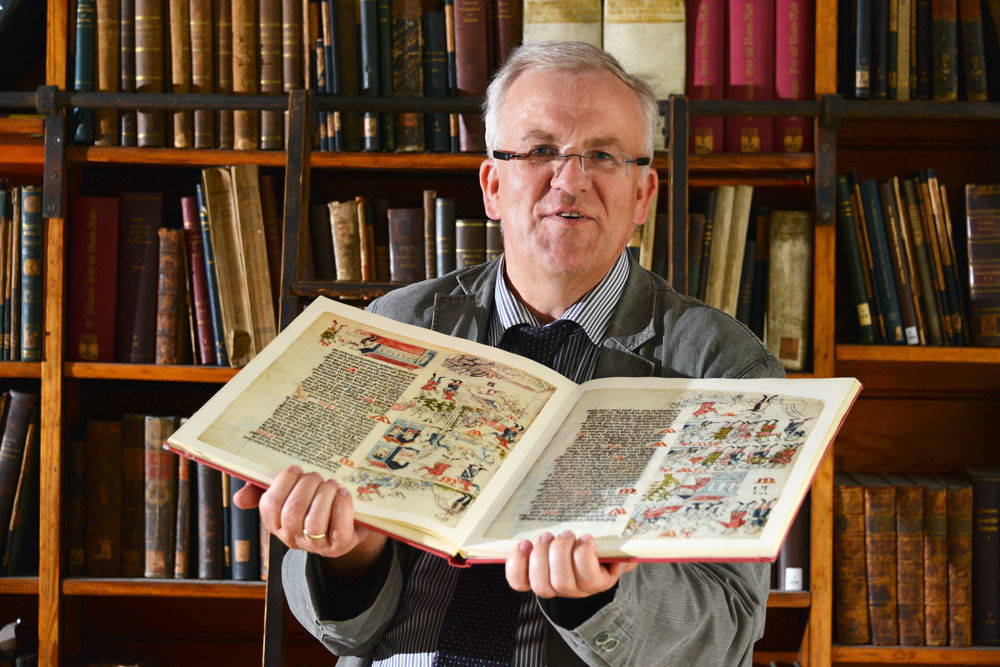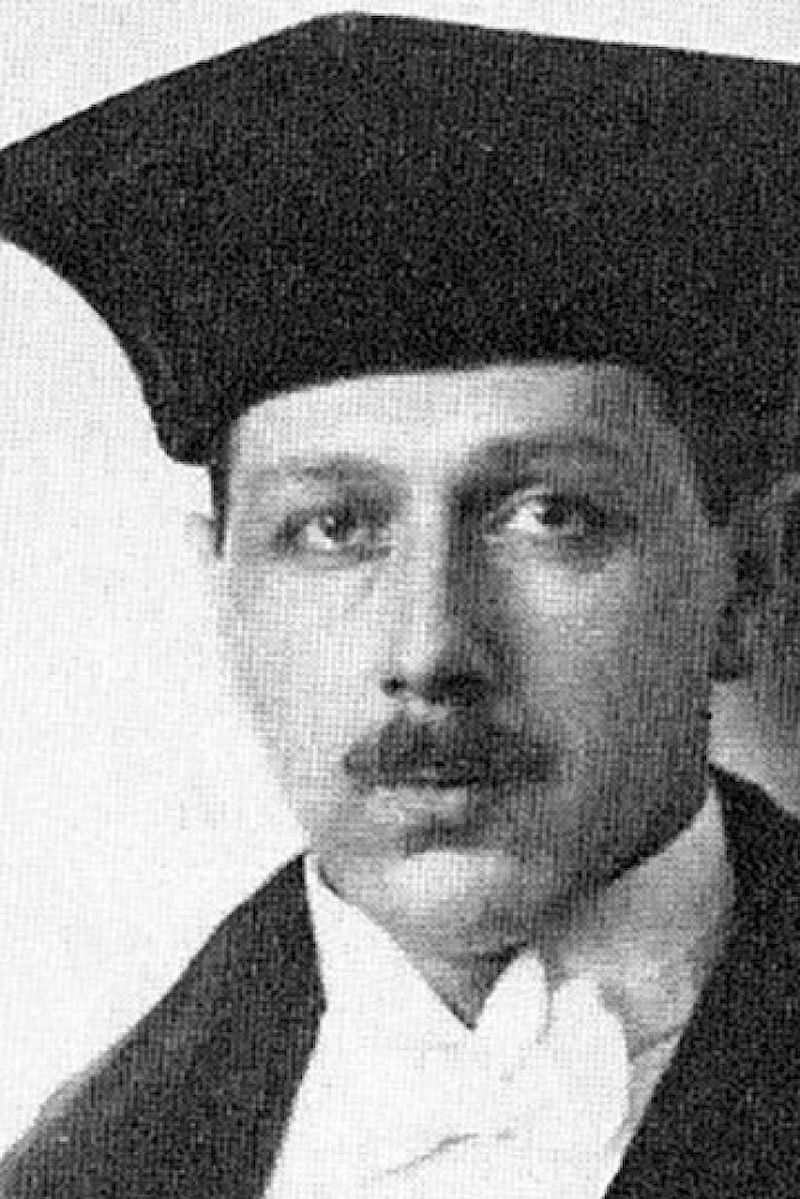Unforgotten injustice

Heiner Lück discovered Guido Kisch for the first time around 35 years ago. At that time he was doing research for his dissertation. Back then the student never suspected that Kisch would accompany him throughout his life. Lück also read Kisch’s scientific work for his dissertation and habilitation. Later he studied his private notes and letters. Both of the legal historians have similar research areas: humanistic jurisprudence and the Sachsenspiegel, the most important law book of mediaeval Germany.
The Sachsenspiegel was an important aspect of Kisch’s habilitation. “In 1922 he was even offered to lead the comprehensive commentary edition of the Sachsenspiegel, but he refused. It was more than one person could tackle alone,” explains Heiner Lück. Since 1998 he has headed the project, which runs until 2022, together with his teacher Rolf Lieberwirth. The Sachsenspiegel has become his life’s work.
When Lück talks now about Kisch and his legal-historical work, you may be led to believe that both scholars were not only colleagues but friends. Kisch’s ability to make many sources scientifically fruitful, his unshakable principles and his “Prussian discipline” are impressive. “He stood out for his love of the truth, his love for the German language and for his enjoyment of writing,” Lück says of his predecessor. However the two never had a chance to meet. Kisch was born in 1889 in Prague and grew up in a respected Jewish family. He decided to study law for practical reasons: a friend of his father had a law practice in Prague at the beginning of the 20th century where Kisch could get a job.

However, after receiving his doctorate in 1912 he went to the University of Leipzig. “There he could qualify as a professor without having to give up his Jewish faith,” says Lück. In 1920 Kisch became a professor in Königsberg, moving to Friedrichs University Halle-Wittenberg in 1922. It was a tragic turning point for him when the national socialists seized power. In April 1933 the Nazi regime passed “The Law for the Restoration of the Professional Civil Service” which also suspended Jewish and politically undesirable professors from their jobs. Kisch was forced to abruptly end his teaching and research activities. “A decree by the Prussian Minister for Science, Art and National Education on 26 October 1933 resulted in his forced retirement,” Lück describes. Kisch decidedly defended himself against the actions of the Nazis, including the stripping of his German citizenship – however it was in vain. “It was both interesting and impressive how this injustice in Halle was administered,” Lück reports.
Every step of Kisch’s dismissal was prepared in detail and recorded, even his handing back of the keys for his office. At the end of 1933 he travelled to New York for a guest stay. Two years later he emigrated for good to the US with his wife and son. Starting over was difficult. He finally found a position at the Hebrew Union College where he could continue his work. However not all of the members of his family had the chance to find refuge abroad. Many relatives fell victim to the Nazi regime. It wasn’t until the mid 1950s that Kisch returned to Europe. He moved to Switzerland where he received an honorary lectureship at Basel University. In the early 1970s he published a Sachsenspiegel bibliography. “It has remained indispensible for research on the Sachsenspiegel,” Lück emphasises. Guido Kisch died in Basel in 1985.
Ten years later Heiner Lück, as a newly appointed professor in the Faculty of Law, organised a commemoration event for Halle’s legal scholars of Jewish descent. He invited an honorary guest: Dr. Alexander Kisch. The son of his predecessor attended with his daughter Suzanne. “His son and granddaughter were very interested in the life and work of their father and grandfather here in Halle.” After the conference Lück and others have remained active: In 2004 a street in Halle’s Büschdorf neighbourhood was named after Guido Kisch. In 2010 his descendents revisited Halle. Lück showed them Kisch’s former home in Schwuchtstrasse in Kröllwitz. For the passionate coin collector – also something he shares with Guido Kisch – maintaining a relationship with the family is important. Which is why he has invited them to the commemoration event in Halle on 27 November 2013.
Contact: Prof. Dr. Heiner Lück
European, German and Saxon Legal History
Phone: 0345 55 23200
Send an email
